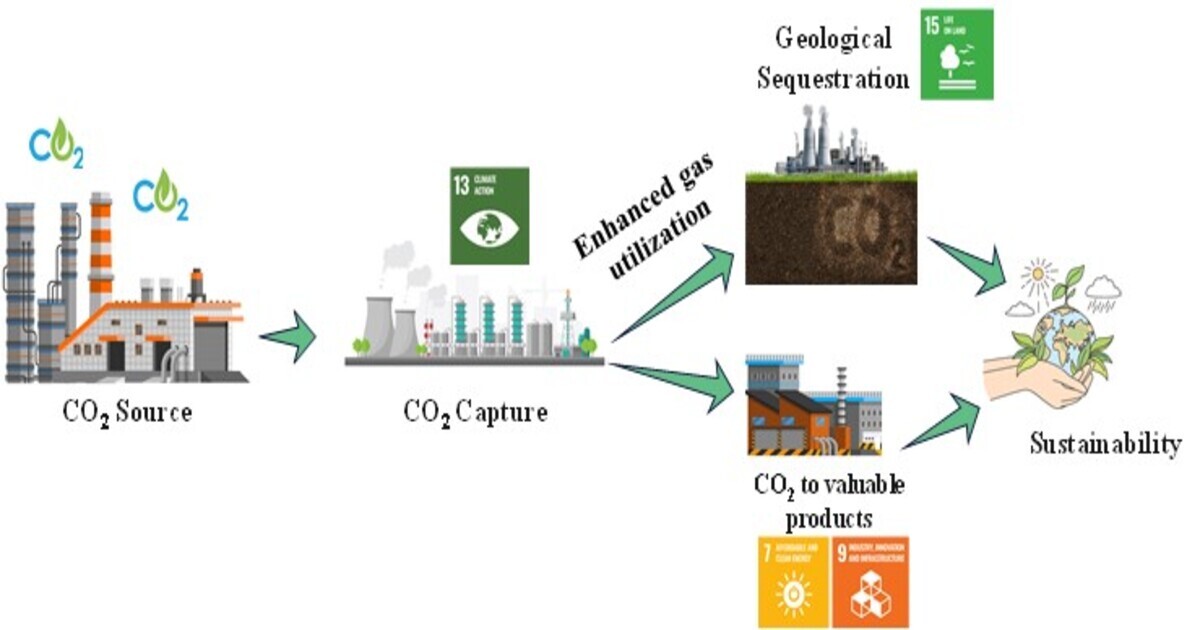Sustainability Perspectives in Carbon Capture and Enhanced Gas Utilization
A special issue of Sustainability (ISSN 2071-1050). This special issue belongs to the section "Energy Sustainability".
Deadline for manuscript submissions: 31 July 2026 | Viewed by 2100

Special Issue Editors
Interests: hydrogen economy; energy transition; CCUS; decarbonization
Special Issues, Collections and Topics in MDPI journals
Special Issue Information
Dear Colleagues,
This Special Issue on "Sustainability Perspectives in Carbon Capture and Enhanced Gas Utilization" delves into the vital role of carbon capture, utilization, and storage (CCUS) technologies in promoting global sustainability, particularly in relation to Sustainable Development Goals (SDGs). As carbon emissions approach 37 gigatons annually, effective CCUS strategies are essential for achieving SDG 13 (Climate Action) by significantly reducing greenhouse gas emissions in alignment with the global Net-Zero Emissions strategy by 2050. Furthermore, innovations in carbon capture methods and utilization pathways that convert CO2 into valuable products align with SDG 9 (Industry, Innovation, and Infrastructure) and SDG 7 (Affordable and Clean Energy), which emphasize the need for reliable, sustainable energy services. The potential for geological sequestration also supports SDG 15 (Life on Land) by ensuring responsible ecosystem management while enhancing resource efficiency through practices like enhanced oil recovery. Contributions are encouraged to explore new concepts, process optimizations, and emerging technologies in CCUS. This Special Issue aims to drive sustainable solutions that address immediate environmental challenges while contributing to long-term ecological balance and resilience across multiple SDGs, particularly those related to energy access and sustainable infrastructure. Consequently, the Guest Editors encourage the submission of state-of-the-art research articles on sustainability perspectives in carbon capture and enhanced gas utilization. Topics of interest include, but are not limited to, the following:
- Carbon capture systems;
- Carbon footprint analysis;
- Life cycle assessment;
- Carbon utilization;
- Carbon sequestration;
- Carbon storage;
- Biogenic CO2 capture and utilization;
- RE based CO2 removal (BECCS);
- FF based CO2 capture and storage (CCS);
- Energy efficiency enhancement of CO2 capture systems;
- CO2 transportation;
- Circular economy and Sustainable Developments Goals.
Dr. Muhammad Abdul Qyyum
Dr. Nasser Ahmed Al-Azri
Guest Editors
Manuscript Submission Information
Manuscripts should be submitted online at www.mdpi.com by registering and logging in to this website. Once you are registered, click here to go to the submission form. Manuscripts can be submitted until the deadline. All submissions that pass pre-check are peer-reviewed. Accepted papers will be published continuously in the journal (as soon as accepted) and will be listed together on the special issue website. Research articles, review articles as well as short communications are invited. For planned papers, a title and short abstract (about 250 words) can be sent to the Editorial Office for assessment.
Submitted manuscripts should not have been published previously, nor be under consideration for publication elsewhere (except conference proceedings papers). All manuscripts are thoroughly refereed through a single-blind peer-review process. A guide for authors and other relevant information for submission of manuscripts is available on the Instructions for Authors page. Sustainability is an international peer-reviewed open access semimonthly journal published by MDPI.
Please visit the Instructions for Authors page before submitting a manuscript. The Article Processing Charge (APC) for publication in this open access journal is 2400 CHF (Swiss Francs). Submitted papers should be well formatted and use good English. Authors may use MDPI's English editing service prior to publication or during author revisions.
Keywords
- carbon capture
- carbon utilization
- greenhouse gas mitigation
- circular carbon economy
- sustainable energy solutions
- climate change mitigation
Benefits of Publishing in a Special Issue
- Ease of navigation: Grouping papers by topic helps scholars navigate broad scope journals more efficiently.
- Greater discoverability: Special Issues support the reach and impact of scientific research. Articles in Special Issues are more discoverable and cited more frequently.
- Expansion of research network: Special Issues facilitate connections among authors, fostering scientific collaborations.
- External promotion: Articles in Special Issues are often promoted through the journal's social media, increasing their visibility.
- Reprint: MDPI Books provides the opportunity to republish successful Special Issues in book format, both online and in print.
Further information on MDPI's Special Issue policies can be found here.






